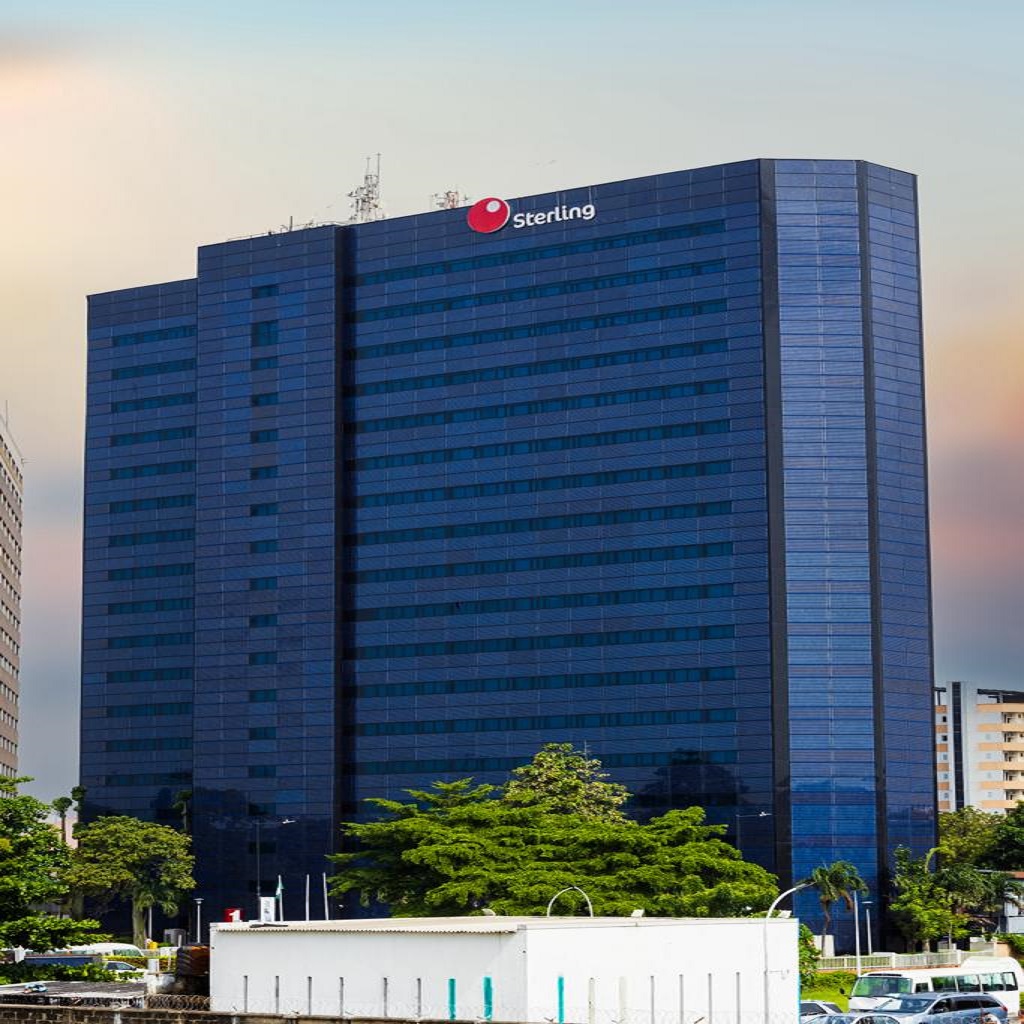E-Financial
Why Ponzi Schemes Thrive Despite Risks

Largely unheralded for a long time, Ponzi schemes came to the consciousness of the entire nation in 2016. With the descent of the Nigerian economy into its first full depression in over two decades, many embraced the rise of these money-spinning schemes as a way out.
At the height of its fame, Mavrodi Mundial Movement (MMM), one of the most popular, had over three million Nigerians on its subscriber list.
Despite the crash of this and many others that came after it, many are still succumbing to the lure of Ponzi schemes.
In this piece, the Research/Development Unit of Yudala, Nigeria’s fastest growing e-commerce outfit – x-rays why Ponzi schemes remain popular in spite of their clear and present dangers.
1.Mouth-watering and quick returns:
In its hey-day, MMM offered Nigerians huge interests on their investment, as much as 30% within a period of 30 days. Hence, an investment of N100,000, for instance, was bound to earn the investor about N130,000 in addition to other bonuses that will reportedly accrue. Same template was followed by the tons of other Ponzi schemes that followed; each looking to out-do the other in the terms offered. In the view of many, not even the banks or other financial institutions can match such returns.
2.Slick marketing:
The operators of the various Ponzi schemes all have one thing in common: the ability to present the benefits of the scheme in glowing terms. Take the example of Twinkas, another very popular investment scheme that gained huge popularity when MMM suspended operations in December 2016: “It’s not a get-rich-quick scheme. It’s ‘get-rich-quicker’ through systematic effort and the compounding of effort through groups of people.” Another one, Joyful Donor which promised 100% returns on investments within 24 hours, claims to “connect donors to impact and outcomes increase satisfaction and giving.”
Many Nigerians have fallen for these slick marketing techniques at their own peril…
3.Tough economic climate:
Nigeria fell into its full recession in 29 years at the turn of last year. Data from the National Bureau of Statistics (NBS), the Central Bank of Nigeria (CBN) and other data agencies revealed that the economy experienced its first full-year recession due to drop in oil output to a 27-year low and reported paralysis in other sectors, mainly as a result of foreign exchange shortages. With job losses in various sectors and inflation rising to double digit figures, many distraught Nigerians were in desperate search of a lifeline. In came all manner of Ponzi schemes promising incredulous returns on investments. These schemes, with newer ones popping up and dropping off on a regular basis, remain quite popular among Nigerians.
4.Free (and massive) publicity:
When it discovered the huge number of Nigerians being drawn into the risky net of Ponzi schemes, the Nigerian government and its regulatory agencies decided to sound a note of caution. Various public financial and anti-graft institutions, including the Central Bank of Nigeria (CBN), Securities and Exchange Commission (SEC), Nigerian Deposit Insurance Corporation (NDIC) and Economic and Financial Crimes Commission (EFCC) repeatedly warned that the schemes are fraudulent and that those investing in them may lose their money. Commendable as the warnings were, it also inadvertently played into the hands of the operators of these schemes by making them more popular.
5.Lucrative referral system:
Ponzi schemes thrive on promises of extraordinary returns through a system which relies on regularly recruiting loads of new subscribers or investors for it to remain afloat. As a result, attractive incentives are offered to “Guiders” or those who succeed in recruiting new investors. As conspicuously displayed on the website of one of these schemes: “You get 10% from all deposits of the participant you invited. Inviting new members into the Community is your additional contribution to its development. But nobody force (sic) the members of the Community to invite new participants. But at the same time, understanding that the network can’t exist without development and participants’ encouragement in the form of referral bonuses motivate many people to take an active position.” Slick, isn’t it?
6.Faceless and sophisticated nature of operations:
The NDIC revealed the sheer scale and popularity of a particularly (in)famous Ponzi scheme when it disclosed that, an estimated three million Nigerians lost N18billion when MMM suspended payment to investors last December. This has not deterred operators from floating other numerous investment schemes and ensnaring more gullible “investors” in its unsustainable fold. Recently, the Dangote Group raised the alarm over another Ponzi scheme in circulation alleging partnership between the “Dangote brand, Nestle, Cussons and other reputable food processing companies” in launching a multi-level marketing initiative that intends to “fight hunger, poverty and stop recession” by paying participants in food.
Most Ponzi schemes are run by faceless individuals who boldly disclaim any forms of liabilities on their websites.
Indeed, it is believed that most of these schemes, although painted as distinct with different marketing pick-up lines, operations and branding, are actually run by the same set of individuals out of choice locations such as Dubai and the United Arab Emirates.
Most of these chaps are young and digitally-savvy individuals, for whom the absence of the risk of discovery and legal consequences means a chance to float more of these dubious investment schemes.
E-Financial
FirstCap MD says Payment Security Remains Biggest Barrier to Bankable Gas and Power Projects

Ukandu E. Ukandu, Managing Director/CEO of FirstCap Limited, a leading investment banking firm and subsidiary of First HoldCo Plc., has reaffirmed that payment security remains the most decisive factor in determining whether gas and power projects in Nigeria secure financing.

He shared this perspective during a panel discussion on project bankability at the 2026 SPE Lagos Energy Week.
Ukandu noted that although several risks influence financing decisions, payment risk consistently emerges as the key barrier to financial close.
“Every major risk matter, but payment risk is the ultimate deal‑breaker. Without strong payment security and disciplined collections, no project can attract sustainable financing,” he said.
He explained that lenders typically evaluate three core risk pillars, payment reliability, foreign‑exchange exposure, and contract enforceability, with payment reliability presenting the greatest challenge across Nigeria’s energy value chain. Persistent collection inefficiencies, rising arrears, and liquidity pressures continue to weaken investor confidence.
To enhance payment security, Ukandu highlighted mechanisms widely used by financiers, including letters of credit, bank guarantees, escrow accounts with payment‑waterfall structures, reserve and sinking funds, sovereign or sub‑sovereign support, and take‑or‑pay offtake agreements.
Addressing foreign exchange risk, he noted that volatility remains difficult to manage, especially for projects with dollar‑denominated costs but naira‑denominated revenues. Lenders typically mitigate this through foreign exchange ‑linked tariff indexation, partial dollarisation for credible industrial offtakers, escrow protections, selective hedging, and foreign exchange reserve buffers.
However, he cautioned that indexation alone seldom eliminates exposure due to regulatory limits and timing delays.
On legal and regulatory certainty, Ukandu stressed the need for contracts that are enforceable and clearly structured, particularly around take‑or‑pay obligations, termination payments, step‑in rights, and dispute‑resolution frameworks. He added that factors such as tariff adjustments, licence changes, and price controls can significantly affect project viability if they are not fully addressed at the contracting stage.
While fiscal incentives such as tax holidays and accelerated depreciation can strengthen project economics, Ukandu emphasised that they cannot compensate for weak fundamentals.
“Incentives make a good project better, but they do not make a weak project bankable. Cash‑flow reliability and disciplined foreign exchange management must come first,” he said. He also noted that naira‑based incentives may lose value if project revenues are not indexed.
He concluded by urging industry players to prioritise revenue security from the earliest stages of project structuring: “Protect returns at the source. Build strong offtake arrangements with solid credit support and currency alignment to ensure cash is received in full and on time.”
E-Financial
Sterling HoldCo Starts Allotment of Oversubscribed Public Offer Shares

Sterling Financial Holdings Company Plc (Sterling HoldCo) has begun allotting 12,581,000,000 ordinary shares of 50 kobo each at ₦7.00 per share from its 2025 Public Offer.

Sterling HoldCo
The process follows Central Bank of Nigeria (CBN) and Securities & Exchange Commission (SEC) approvals.
The offer, opened September 15, 2025, drew 18,280 applications for 16.84 billion shares worth ₦117.88 billion—109.79 per cent oversubscribed.
Valid applications from 18,276 shareholders totalled 13.81 billion shares; all compliant applicants receive full allotments.
Refunds for rejects/excess, plus interest, process via RTGS/NIBSS by February 17, 2026, handled by Pace Registrars Limited.
Shares credit to CSCS accounts by the same date; new accounts held in pool pending documentation.
The raise bolsters capital for banking subsidiaries, injects ₦10 billion into SterlingFI Wealth Management to meet SEC rules, and funds credit expansion, innovation, and support for businesses/households.
Strong Financials, Diversified Growth
FY25 interim results show 99 per cent profit before tax growth; gross earnings up 46 per cent to ₦476.5 billion; assets at ₦3.92 trillion; deposits up 18 per cent to ₦2.98 trillion; shareholders’ funds up 39 per cent to ₦424 billion.
Cost-to-income ratio improved to 63 per cent from 72 per cent.
Subsidiaries—Sterling Bank Limited (conventional), The Alternative Bank Limited (non-interest, 150+ branches)—comply with CBN capital rules.
Initiatives include Mata Zalla (women tricycle training) and Plateau agriculture programme.
The offer attracted first-time retail investors, broadening ownership.
Sterling HoldCo welcomes new shareholders, poised for sustained growth and economic impact.
E-Financial
Ecobank Nigeria Fully Repays $300m Eurobond Notes

Ecobank Nigeria has announced the successful repayment of the outstanding principal and accrued interest on its original $300 million Eurobond due February 16, 2026, marking a significant milestone in its liability management strategy and overall balance sheet strengthening efforts.

Following the full repayment of the Eurobond obligations, the Bank stated that it will now focus its funding initiatives primarily on the domestic capital markets. T
his strategic shift reflects growing confidence in Nigeria’s local debt market and aligns with Ecobank Nigeria’s long-term objective of optimising funding costs while deepening its participation in the domestic financial ecosystem.
“Going forward, Ecobank Nigeria will prioritise domestic credit ratings and local debt issuance to achieve its funding objectives,” stated Ogorchukwu Okwechime, Financial Controller, Ecobank Nigeria, in Lagos.
He added that the successful repayment reinforces the Bank’s commitment to maintaining a resilient balance sheet and sustaining investor confidence.
The tender offer was conducted with Renaissance Capital Africa (Renaissance Securities Nigeria Limited) acting as financial adviser and dealer manager, while Sodali & Co Limited served as tender agent.
The notes were originally issued by EBN Finance Company B.V., with limited recourse to the issuer, for the sole purpose of financing the purchase of the US$300 million 7.125 per cent Senior Note due 2026 issued by Ecobank Nigeria.
The transaction underscores Ecobank Nigeria’s proactive approach to liability management, prudent capital planning, and strategic alignment with evolving market conditions.
It further positions the Bank to leverage domestic funding opportunities while maintaining financial flexibility and operational stability.

 Telecom2 days ago
Telecom2 days agoTerra Moves to Expand in African Drone Sector, Secures $22m Funding

 Telecom2 days ago
Telecom2 days agoTemu Assures Compliance Amid Nigeria Data Privacy Probe

 E-Financial2 days ago
E-Financial2 days agoDMO Offers ₦800bn FGN Bonds in February Auction Surge

 E-Financial2 days ago
E-Financial2 days agoDanjuma, Taj Bank Staff Jailed for 5 Years over N22m Fraud

 E-Financial2 days ago
E-Financial2 days agoKPMG Outlook Reveals Financial Services CEOs Double down on AI, Resilience and Growth in 2026

 Telecom3 days ago
Telecom3 days agoMTN Group Announces Proposed Full Acquisition of IHS Towers

 News2 days ago
News2 days agoChianugo, Nigerian $150m suit Against Google, GoDaddy.com Stalled due Judge’s Absence

 General News2 days ago
General News2 days agoFG to Review MTN’s $6.2Bn IHS Acquisition — Tijani














